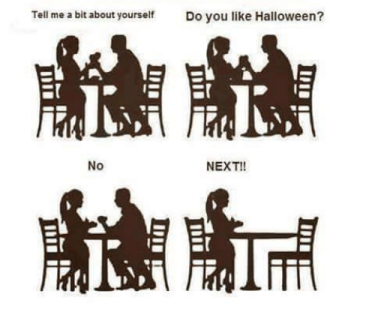Even after five years, I still get butterflies in my stomach come first day of term. In my opinion, the first day of term is one of the most important as there is a need at all levels to both establish rapport with your learners and lay down the ‘ground rules’. But how can you open these first day lessons? What’s the first thing you say to the twenty pairs of eyes staring at you? These questions have no doubt come to, perhaps even plagued, your mind sometime over your career. Hopefully, some of the ideas presented in this post can relieve some of the first day jitters and get you off on the right foot with your learners, leading into a productive and positive year!
Young Learners
Mime Introductions

Unless the learners in the class know each other, it’s highly likely they are going to be nervous about the first day of school as well. So, one thing that I love to do is introduce myself through mime and make it a guessing game. Once all of the children are in the class, move to the front, wave and go through the normal hello sequence without speaking. From here, you really have an unlimited amount of choice of what to elicit about yourself. I usually go for my age, likes and dislikes. The great thing about this opener is that the learners are coming up with and using the language by themselves – from day one! And, as it’s a guessing game, energy levels will be high, their natural competitiveness will come out and those first days nerves will soon be forgotten.
To build on this, try pairing learners and then getting them to find out some information about each other. Then, each learner must introduce their partner to the class through mime.
Snowball fight

I read about this activity in an ELT magazine years ago (I can’t remember the name, sorry!), and it has worked a treat every time. Get the kids in the class and introduce yourself, but don’t give any extra details. Then write the following on the board:
- Name
- Age
- Family members
- Like
- Dislike
From here, have the leaners write this information about themselves on a piece of paper. When they have finished writing, divide the class into two teams and place one team on either side of the class. Next, tell learners to scrunch their pieces of papers up into balls – this always gets some weird looks! The next part is important – explaining the rules. Tell them that they are about to have a snowball fight; they will have one minute to throw the balls, but they must not be thrown at the face. Make sure to tell them to be aware of the classroom furniture (I usually move this out the way before the start of class). Then, BOOM! You start the fight by throwing your piece of paper. After the mayhem has finished, each learner picks up a piece of paper (including you) and then learners introduce each other by reading off the papers.
Apart from the obvious fun that comes with this activity (I really am a kid still deep down!), what I love most about this is that the learners get to practise forming full sentences with very little prompting/scaffolding from day one. It also allows you to gain an idea of who the stronger ones are and the level of the class as a whole.
Teens and Adults
Learner detectives

Getting to know a person is a process that we all know fairly well. Meet them, ask them questions, they ask you questions, et cetera, et cetera, et cetera (Yul Brynner voice). But, what if you had to get to know someone by looking at their belongings? In short, that’s what this activity is all about – but the learners will be learning about you!
Before class, think about some of the things you own and choose five that you believe represent a fairly big part of who you are (as much as you are willing to divulge). I usually choose a bilingual dictionary, my passport, a photo of me when I was a child, a deck of cards and three juggling balls. When you get to class, introduce yourself, but don’t give them any more information about yourself. Explain to the class that they are going to detectives for a day and that they will be finding out information about you. Split the class into five groups and give each group one of the objects. Tell them they have about one to two minutes with each object. Once each group has seen each object, the groups have a minute of so to prepare to present their theory to the class. Make sure to tell them what each object represents at the end!
This activity is super fun, gets learners interested straight away and, perhaps more importantly, allows for good rapport building. And, it requires very little preparation!
Speed dating

This activity works best with adults, but can be done with teens as well. Before class starts, arrange the class so that it resembles a speed dating setting, i.e. tables in a square or circle with two chairs at each table. On the board, write a list of ideas. I usually write the following:
- Name
- Age
- Family
- Work
- Study
- Hobbies
- Likes
- Dislikes
When the class arrives, sit them so that half are in the seats that won’t ‘move’, and the other half in the seats that will be doing the moving, i.e. walking to the next partner. Explain to the class that they will have 2 minutes (you could make this longer or shorter) to get to know the person in front of them. I usually put myself in the group as well, so long as the numbers work out. Following this, the activity basically runs itself (you’re the timer)! Once it’s finished, you could build on this by asking the class to yell out information about one of the people in the class.
The reason I say that this works best with adults is not because adults ‘date’, but rather because I have found that adults often have more inhibitions about talking with ‘strangers’ when compared to young learners. With this activity, the adults are forced (in a sense) to talk with everyone. The sooner your adult class bonds, the sooner you will be able to have those less formal chats and group activities where affective conditions are perfect for learning.
Hopefully these activities come in handy. If you use any of them, please feel free to leave some feedback.
Have a great first day back!
Jim


Thank you, Jim! This is all very useful and I will definitely play the detective game with my new classes!
LikeLike
Hi Olga,
Thank you for your feedback – it’s always great to know that someone is using the ideas!
Jim
LikeLike